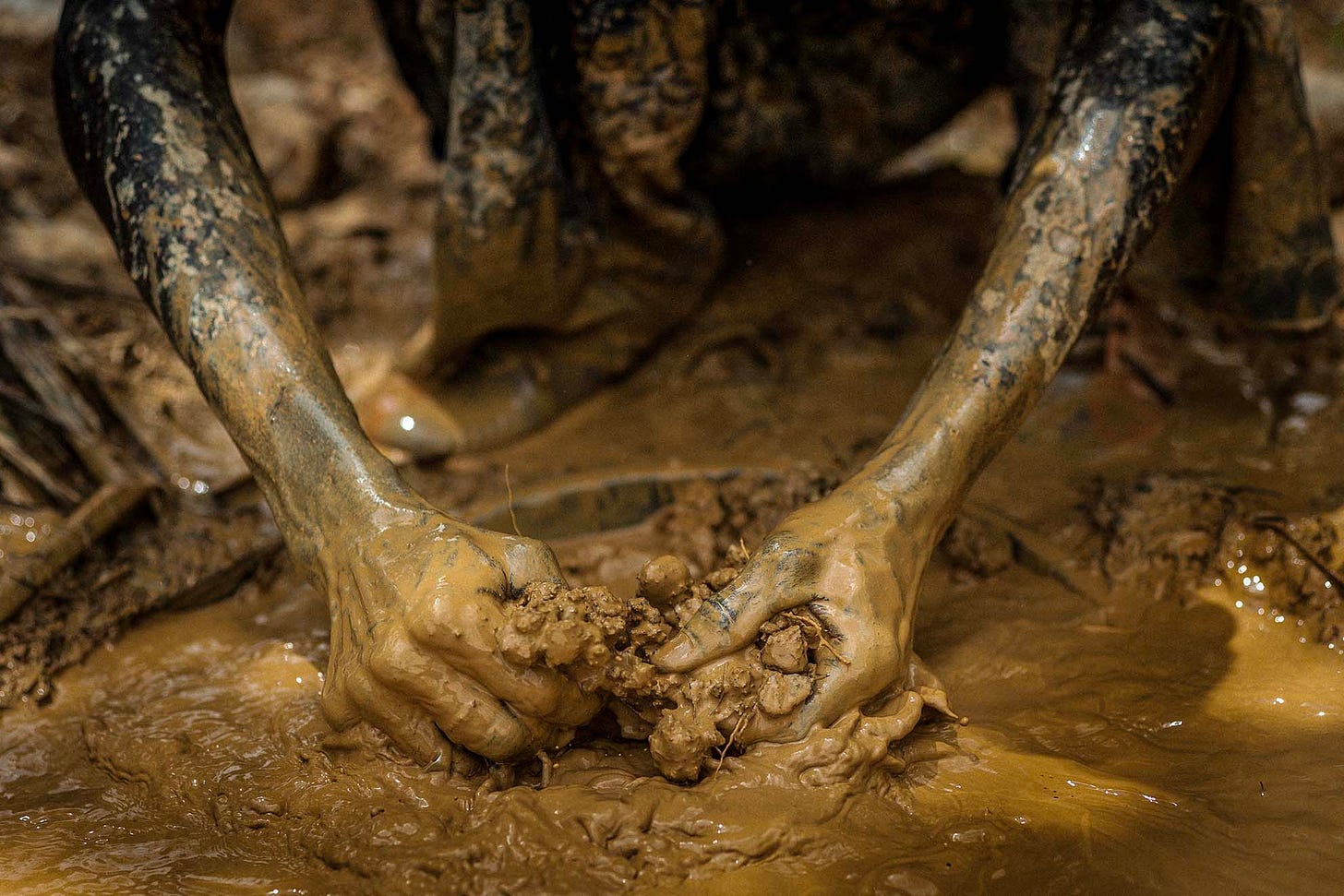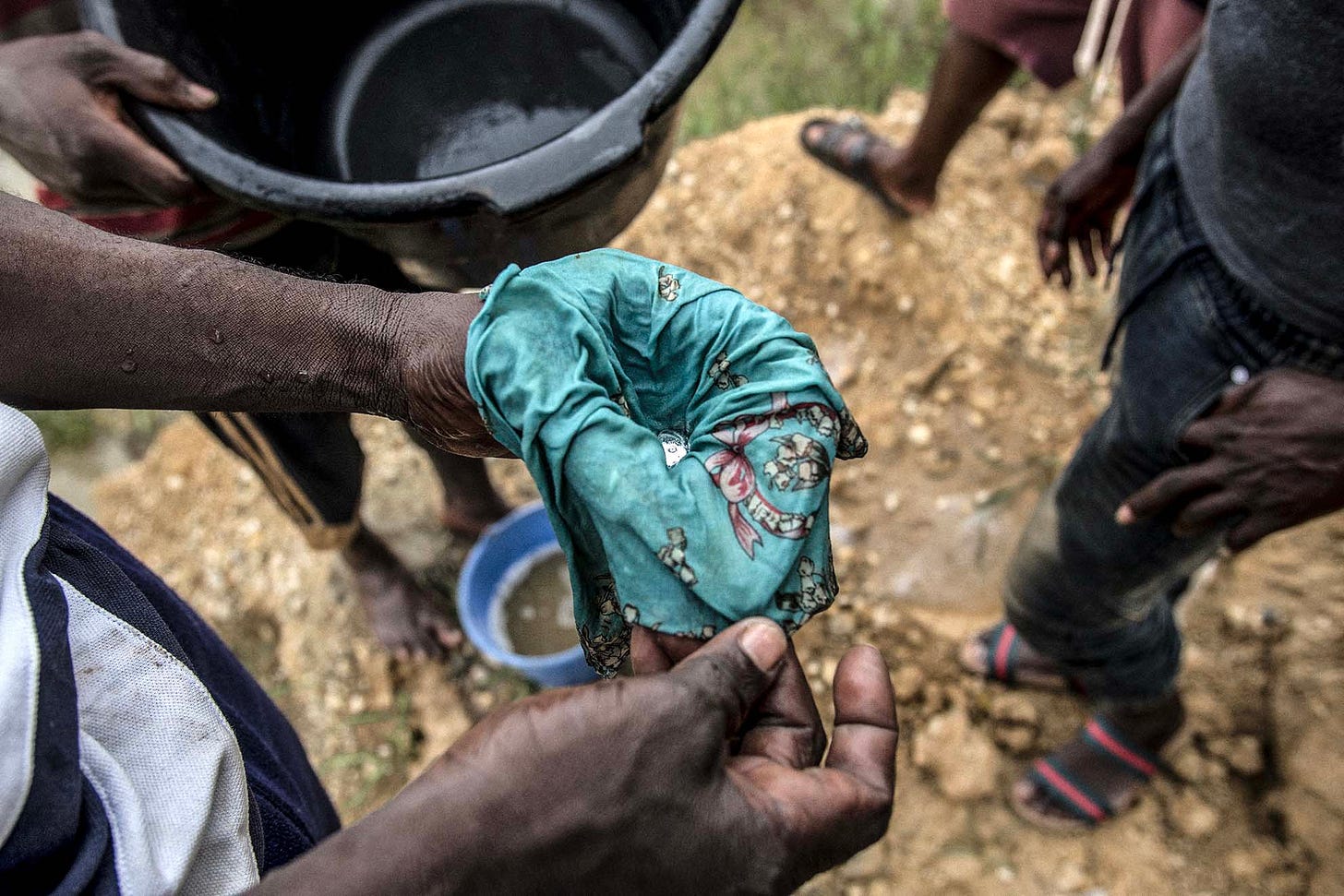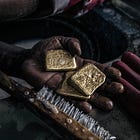Mahama’s gold rush is fast and furious
Gold is trading at more than $3,200 an ounce as Trump-spooked rich people buy bullion as a ‘safe haven’ investment. This might be the miracle Ghana needs to turn its economy around.
Delali Adogla-Bessa
Gold is trading at more than $3,200 an ounce as Trump-spooked rich people buy bullion as a ‘safe haven’ investment. This might be the miracle Ghana needs to turn its economy around. President Mahama is betting on a monopoly.

No one in Ghana may buy unrefined gold, however small the quantity – unless its from the government itself, through the “GoldBod” created last month. The government says it is monopolising internal gold trade to shore up the local currency (cedi) and kick out foreigners who buy gold from unlicensed miners and smuggle it out of Ghana.
But the screw-tightening also means local traders who deal in small gold quantities, like Larry Ansong*, who makes golden ornaments, rings, necklaces and bracelets, will now have to buy their raw material from the GoldBod. They will also need new licences. That is causing anxiety in Accra corner shops.
When The Continent visits his shop in Accra, Ansong is on a call with other low-stakes traders discussing the financial strain of the new regime. He needs 1,000 Ghanaian cedis ($70) to apply for a licence, GH¢ 10,000 ($700) to actually get it, and would need to renew every year for GH¢ 7,000 ($490). He is also required to have a minimum working capital requirement of GH¢50,000 ($3,558) to qualify for the licence.
Ansong says his shop deals in about 14g of gold a month, which at the current unusually high prices on the world market would be worth less than $1,500. But the new regulations seem designed for traders who deal in big volumes without explicitly exempting anyone else, except multinational corporations mining their own gold.
Ansong is unsure which licences he needs. He buys small quantities of gold, smelts them and fabricates jewellery and ornaments.
Information on the GoldBod’s website suggests he will need a licence for each of the three business steps and the smelting and fabrication licences won’t be open for applications until July. “Many smaller traders feel disenfranchised or unclear about how to legally continue operations,” said Amanda Clinton, a lawyer who advises traders in the precious minerals sector.
A welcome reform rolling too fast
Even Ansong admits Ghana needed to reform its gold sector. “I agree there should be stronger regulation,” he says. He has himself bought “galamsey” gold when it helped his profit margin.
Small-scale mining, referred to locally as galamsey when it’s unlicensed, is said to feed gold smuggling syndicates that cost the government billions in potential tax revenue.
In 2022, the finance minister at the time, Ken Ofori-Atta, said that 60 tonnes of gold worth an estimated $1.2-billion were spirited out of Ghana via dark channels. Overall, the government estimates that up to 80% of the gold.
In 2022, the finance minister at the time, Ofori-Atta, said that 60 tonnes of gold worth an estimated $1.2-billion were spirited out of Ghana via dark channels. Overall, the government estimates that up to 80% of the gold mined by artisanal and small-scale miners is smuggled out of Ghana.
The GoldBod is supposed to stem those illicit flows. Eager to show its off to a roaring start, the agency’s officials paraded three Indian citizens on Wednesday, alleging that they are linked to a gold smuggling syndicate. It pointed to India, China, and the United Arab Emirates as the main destinations for smuggled gold.
If the agency succeeds in curbing gold smuggling, the pay off could be huge, especially with the current record setting price of gold on the world market.
Even with much of it reportedly smuggled, gold mining by artisanal and small-scale miners accounted for $5-billion of Ghana’s $11.4-billion gold exports last year.
If only the reform was not quite as rushed.
“The general sentiment is that compliance would be more achievable if GoldBod adopted a phased roll-out with clearer communication, better stakeholder input, and transitional allowances,” said Clinton.
The GoldBod is not leaning towards any compromise. “The law is the law,” the board’s spokesperson, Prince Minkah, told The Continent.
The president’s big bet
President John Mahama returned to office in December on the back of two years of economic turmoil in Ghana. He must perform an economic miracle and reset a debt-laden country whose currency often seems to be in free-fall. Positioning the government to ride the wave of the current gold boom market is his big bet. The GoldBod will have GH¢4- billion ($280-million) every week to buy all the gold floating around – at about the same prices that galamsey miners offer on the dark market – and sell it on the world market itself for a killing.
“The bigger picture here is that we want to optimise precious minerals for national benefit,” said GoldBod spokesperson Minkah. “We have done the math and we don’t foresee any losses.”

Mahama’s bet is not unpopular. It has been largely welcomed by licensed miners and civil society groups among others. Galamsey is often blamed for polluting up to 60% of Ghana’s water bodies and civil society groups have long campaigned against it.
The GoldBod will not actively police gold mining, leaving that to the police, the Environmental Protection Agency and the Minerals Commission. But the board said it planned to establish traceability standards that could help the galamsey fight. “That will be GoldBod’s way of promoting sustainable mining,” insisted Minkah.
Pessimists might cite the government’s track record on doing global business. The country’s other major commodities parastatal, Ghana Cocoa Board, has a monopoly over the domestic trade in cocoa but has incurred only losses since the tail end of President Mahama’s first presidency, which ended in 2017. It is in debt to the tune of GH¢32-billion ($2.24-billion), and many local farmers supplying it are disgruntled.
Minkah claimed President Mahama’s better governance will be the differentiator between the GoldBod and CocoBod. “Some of these challenges will not become a headache. I don’t foresee them within the GoldBod framework because we have a leadership that values transparency.”




